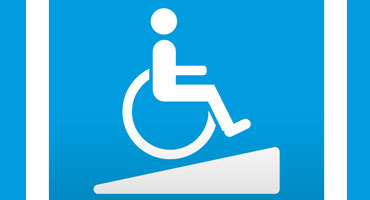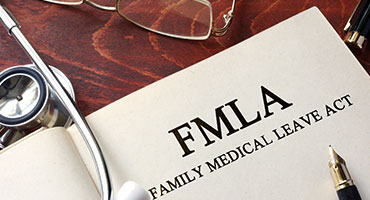Employment Law
Because New Jersey is an at-will employment state, an employer may terminate an employee for any reason or no reason, with two important exceptions:
discrimination and retaliation.

Wrongful Termination and Discrimination
It is unlawful discrimination if your employer fired you because of your age, gender, race, national origin, disability, pregnancy, religion, or sexual orientation. It can also be unlawful for an employer to fire you in retaliation for raising objections or complaints about illegal or other improper activities, or for exercising your legal rights.

Retaliation & Whistleblower Protection
Have you been fired for making a complaint or refusing to take part in something unlawful? That is a prime example of unlawful retaliation, and it is your legal right to make complaints about discrimination, harassment, and other unlawful conduct you face in the workplace. If your employer retaliates against you by firing you, harassing you, demoting you, or making your working conditions so miserable that you are forced to quit, then your rights may have been violated.

Unemployment Claims and Appeals
It is often a challenge for New Jersey employees to collect unemployment. Our unemployment attorneys can handle unemployment claims on an affordable, flat-fee basis. The flat fee includes an initial interview, contact with the Department of Labor, review of transcripts and documents, legal brief when required, and personal representation at your hearing. We strongly recommend that anyone applying for unemployment be represented by counsel. There are many potential pitfalls, and representation will greatly increase your chances of successfully collecting benefits without disqualification.
f

Sexual Harassment
Sexual harassment is a form of gender discrimination or sexual preference discrimination, and it is one of the most common forms of workplace harassment. Sexual harassment is also actionable when it is based on what others perceive an employee’s sexual preference to be. There are two types of sexual harassment: hostile work environment sexual harassment and quid pro quo sexual harassment.

Workplace Harassment and Bullying
Harassment other than sexual harassment is actionable when a severe action or a hostile work environment is created due to an employee’s race, religion, sexual orientation, disability, or another protected trait. Often, the bullying or harassment must be the result of discrimination or whistleblowing retaliation. If you are being bullied or harassed, you may have a cause of action under New Jersey public policy, and you should contact us to discuss your options.

Failure to Provide Reasonable Accommodations
The Americans with Disabilities Act and the New Jersey Law Against Discrimination both require employers to make “reasonable accommodations” for employees with disabilities. If you request a modification or adjustment, your employer is required to discuss your needs and attempt to provide a compliance that will make it possible for you to perform your job. If you were denied a reasonable accommodation for your disability, or you have lost your job as a result of this denial, then you may have a claim.

Civil Rights Claims
We represent employees whose rights, as protected by the United States and New Jersey constitutions, have been violated. For example, we represent state and local public employees who have been the victims of retaliation because they exercised their rights to freedom of speech, freedom of association, or freedom of religion. We also represent employees who have been denied due process or equal protection of law.

Family and Medical Leave
Under certain circumstances, employees have the legal right to take medical leave to care for their own pregnancy, adoption, serious health condition, or to care for an immediate family member with a serious health condition. Employees who are eligible to take a family or medical leave may be legally entitled to as many as 12 weeks of leave per year. Likewise, under certain circumstances, New Jersey employees may be entitled to as many as 12 weeks of family leave and 12 weeks of medical leave.

Non-Compete Agreements
Sometimes, non-compete agreements place an unfair burden on employees and make it difficult to earn a living. If you have been sued or are threatened with a lawsuit relating to a non-compete agreement, if you want to know whether your non-compete agreement prevents you from accepting a job offer, or if you are considering signing an employment contract or separation agreement that contains a non-compete clause, we can help.

Worker’s Compensation Retaliation
It is a violation of New Jersey law to retaliate against an employee because that employee has filed a claim for workers’ compensation benefits. Such retaliation is prohibited by both the workers’ compensation statutes, as well as the New Jersey common law. In cases where an employee has been terminated because of a workers’ compensation injury, even if the employee has been on an extended work-related disability, there are many claims that the employee may have.

Appellate Division and Supreme Court Appeals
If you believe that an agency or court has made an error in your case or claim, please let us review your claim to determine whether it is worth pursuing an appeal. Keep in mind that there is a very short time limitation for filing an appeal or motion for reconsideration, so please contact us quickly for a consultation.

Representation at Mediation and Arbitration
Many cases today are resolved by either mediation or arbitration. Mediation is a process where the parties meet with a neutral party to try to get the case resolved. Arbitration is a process where the parties submit their matter to an arbitrator, who acts as a private judge, ultimately deciding on a binding resolution. Mediation and arbitration can occur pre-lawsuit, post-lawsuit, or during the lawsuit. If you are in a situation where you are facing a mediation or arbitration, you should be represented by a competent and experienced counsel.

Wrongful Termination and Discrimination
It is unlawful discrimination if your employer fired you because of your age, gender, race, national origin, disability, pregnancy, religion, or sexual orientation. It can also be unlawful for an employer to fire you in retaliation for raising objections or complaints about illegal or other improper activities, or for exercising your legal rights.

Retaliation & Whistleblower Protection
Have you been fired for making a complaint or refusing to take part in something unlawful? That is a prime example of unlawful retaliation, and it is your legal right to make complaints about discrimination, harassment, and other unlawful conduct you face in the workplace. If your employer retaliates against you by firing you, harassing you, demoting you, or making your working conditions so miserable that you are forced to quit, then your rights may have been violated.

Unemployment Claims and Appeals
It is often a challenge for New Jersey employees to collect unemployment. Our unemployment attorneys can handle unemployment claims on an affordable, flat-fee basis. The flat fee includes an initial interview, contact with the Department of Labor, review of transcripts and documents, legal brief when required, and personal representation at your hearing. We strongly recommend that anyone applying for unemployment be represented by counsel. There are many potential pitfalls, and representation will greatly increase your chances of successfully collecting benefits without disqualification.

Sexual Harassment
Sexual harassment is a form of gender discrimination or sexual preference discrimination, and it is one of the most common forms of workplace harassment. Sexual harassment is also actionable when it is based on what others perceive an employee’s sexual preference to be. There are two types of sexual harassment: hostile work environment sexual harassment and quid pro quo sexual harassment.

Workplace Harassment and Bullying
Harassment other than sexual harassment is actionable when a severe action or a hostile work environment is created due to an employee’s race, religion, sexual orientation, disability, or another protected trait. Often, the bullying or harassment must be the result of discrimination or whistleblowing retaliation. If you are being bullied or harassed, you may have a cause of action under New Jersey public policy, and you should contact us to discuss your options.

Failure to Provide Reasonable Accommodations
The Americans with Disabilities Act and the New Jersey Law Against Discrimination both require employers to make “reasonable accommodations” for employees with disabilities. If you request a modification or adjustment, your employer is required to discuss your needs and attempt to provide a compliance that will make it possible for you to perform your job. If you were denied a reasonable accommodation for your disability, or you have lost your job as a result of this denial, then you may have a claim.

Civil Rights Claims
We represent employees whose rights, as protected by the United States and New Jersey constitutions, have been violated. For example, we represent state and local public employees who have been the victims of retaliation because they exercised their rights to freedom of speech, freedom of association, or freedom of religion. We also represent employees who have been denied due process or equal protection of law.

Family and Medical Leave
Under certain circumstances, employees have the legal right to take medical leave to care for their own pregnancy, adoption, serious health condition, or to care for an immediate family member with a serious health condition. Employees who are eligible to take a family or medical leave may be legally entitled to as many as 12 weeks of leave per year. Likewise, under certain circumstances, New Jersey employees may be entitled to as many as 12 weeks of family leave and 12 weeks of medical leave.

Non-Compete Agreements
Sometimes, non-compete agreements place an unfair burden on employees and make it difficult to earn a living. If you have been sued or are threatened with a lawsuit relating to a non-compete agreement, if you want to know whether your non-compete agreement prevents you from accepting a job offer, or if you are considering signing an employment contract or separation agreement that contains a non-compete clause, we can help.

Worker’s Compensation Retaliation
It is a violation of New Jersey law to retaliate against an employee because that employee has filed a claim for workers’ compensation benefits. Such retaliation is prohibited by both the workers’ compensation statutes, as well as the New Jersey common law. In cases where an employee has been terminated because of a workers’ compensation injury, even if the employee has been on an extended work-related disability, there are many claims that the employee may have.

Appellate Division and Supreme Court Appeals
If you believe that an agency or court has made an error in your case or claim, please let us review your claim to determine whether it is worth pursuing an appeal. Keep in mind that there is a very short time limitation for filing an appeal or motion for reconsideration, so please contact us quickly for a consultation.

Representation at Mediation and Arbitration
Many cases today are resolved by either mediation or arbitration. Mediation is a process where the parties meet with a neutral party to try to get the case resolved. Arbitration is a process where the parties submit their matter to an arbitrator, who acts as a private judge, ultimately deciding on a binding resolution. Mediation and arbitration can occur pre-lawsuit, post-lawsuit, or during the lawsuit. If you are in a situation where you are facing a mediation or arbitration, you should be represented by a competent and experienced counsel.
